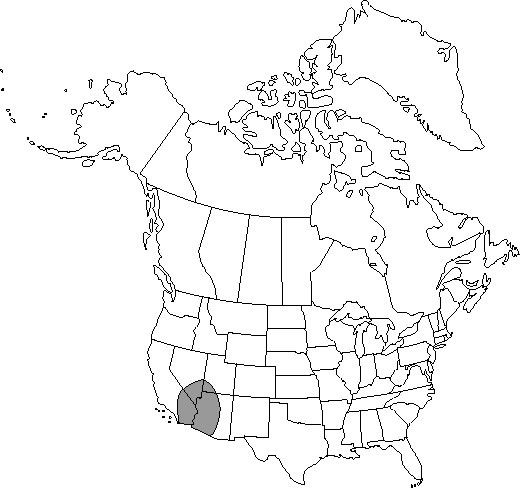Difference between revisions of "Ephedra fasciculata"
Amer. J. Bot. 21: 573. 1934.
FNA>Volume Importer |
imported>Volume Importer |
||
| (One intermediate revision by the same user not shown) | |||
| Line 8: | Line 8: | ||
}} | }} | ||
|common_names=Fasciculate ephedra | |common_names=Fasciculate ephedra | ||
| + | |special_status={{Treatment/ID/Special_status | ||
| + | |code=E | ||
| + | |label=Endemic | ||
| + | }} | ||
|basionyms= | |basionyms= | ||
|synonyms={{Treatment/ID/Synonym | |synonyms={{Treatment/ID/Synonym | ||
| Line 53: | Line 57: | ||
|publication title=Amer. J. Bot. | |publication title=Amer. J. Bot. | ||
|publication year=1934 | |publication year=1934 | ||
| − | |special status= | + | |special status=Endemic |
| − | |source xml=https:// | + | |source xml=https://bitbucket.org/aafc-mbb/fna-data-curation/src/2e0870ddd59836b60bcf96646a41e87ea5a5943a/coarse_grained_fna_xml/V2/V2_388.xml |
|genus=Ephedra | |genus=Ephedra | ||
|species=Ephedra fasciculata | |species=Ephedra fasciculata | ||
Latest revision as of 20:23, 5 November 2020
Shrubs erect or prostrate, 0.5–1 m. Bark gray, cracked and fissured. Branches opposite or whorled, rigid, angle of divergence about 30°. Twigs pale green, becoming yellow with age, not viscid, usually smooth or very slightly scabrous, with numerous longitudinal grooves; internodes 1–5 cm. Terminal buds conic, 1–3 mm, apex obtuse. Leaves opposite, 1–3 mm, connate to 1/2–3/4 their length; bases membranous, brown, shredding and becoming gray with age, ± persistent; apex obtuse. Pollen cones 2–several at node, ellipsoid to obovoid, 4–8 mm, sessile; bracts opposite, 4–8 pairs, light yellow, obovate, 2–3 × 2 mm, membranous, slightly connate at base; bracteoles exceeding bracts; sporangiophores 3–9 mm, 1/4–3/4 exserted, with 6–10 sessile to short-stalked (less than 1 mm) microsporangia. Seed cones 2–several at node, obovoid to ellipsoid, 6–13 mm, sessile or on short peduncles; bracts opposite, 4–7 pairs, elliptic, 3–7 × 2–4 mm, membranous with light brown to green, thickened center and base, slightly connate at base, margins entire. Seeds 1(–2), ellipsoid, 5–12 × 3–5 mm, light brown, longitudinally furrowed.
Phenology: Coning March–April.
Habitat: Dry rocky slopes, washes, and sandy areas
Elevation: 300–1200 m
Distribution

Ariz., Calif., Nev., Utah.
Discussion
Selected References
None.